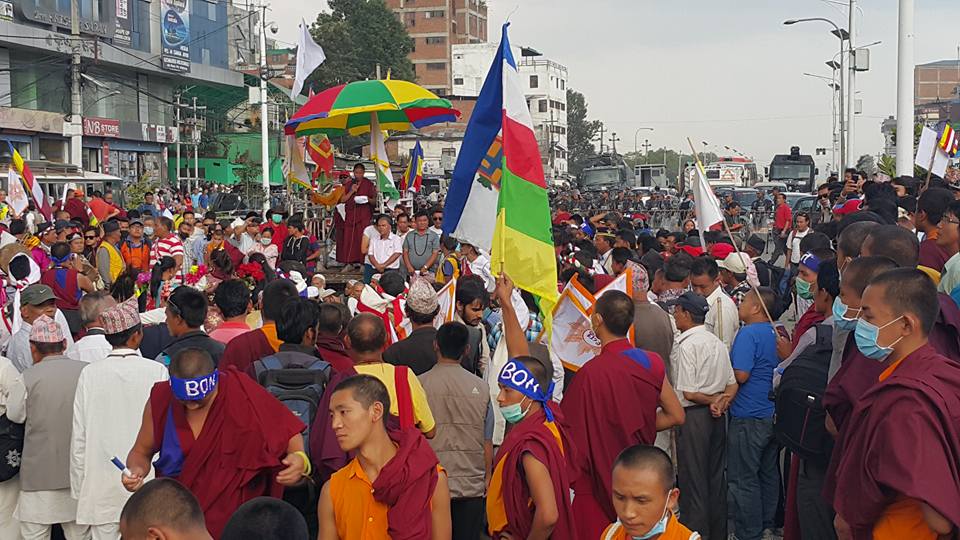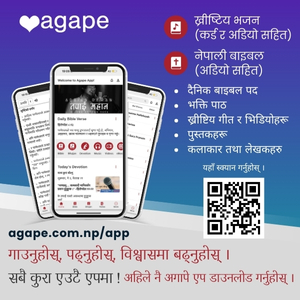Re-declaring Nepal as a secular country has brought happiness at the same time fear and confusion among religious minorities.
As Constitution Assembly passed the bill of country declaring secularism, three churches in East Nepal blasted at night on 15 September. A newly formed fundamentalist group called Hindu Morcha claimed the blast. No casualties reported but local polices were injured while trying to defuse third bomb in different Church. Morcha further threaten public not to send their children school and do not make long trips, stay at home with required provision of household needs, as they will strike again national wide. (http://kathmandupost.ekantipur.com/news/2015-09-15/bombs-explode-at-jhapa-churches.html
A terror created by Hindu Morcha is spread among religious minorities in east Nepal now. Last month only, at night on 25 August 2015, a Christian group of Thrau; one of the oldest tribal groups in Terai region of Nepal, together with their Pastor Chaudhary were badly beaten by the security forces. Local Churches in west Nepal [Kailali] remained under terror created by the government.

Photo by Raju Pradhan
There are numbers of famous missionary schools in Nepal where almost all children are non-christian families.
Nepal was declared secular in 2007 by abolishing 240 years old monarchy by promulgating interim constitution of Nepal-2007.
Kamal Thapa led astriya Prajatantra Party-Nepal (RPP-N); a political party strongly advocating for restoring monarchy and Hindu kingdom has accepted that their demand is not possible to meet and accepted CA rules of procedures.
RPP-N has further clarified that they are not in ally with fundamentalist groups who are trying to tiger religious intolerance. The party will now support such act. RPP-N was a leading government formed by then king Gaynendra and suppressed 19 days long people movement in 2007 before his reign was over.
However, Nepalese media reported that secularism has been redefined as freedom of Sanatan culture and religion and its protection. Point to be noted that [Sanātana Dharma (Devanagari: सनातन धर्म meaning “eternal dharma” or “eternal order”) has been proposed as an alternative, “native” name for Hinduism –Wikipedia.].
Nepal Constitution, article 26: Freedom of Religion-Clause 3:- While enjoying/practicing the rights conferred under this article, no one shall act or behave or cause others to act or behave, or undertake tasks or practices that are against public health, civil society and morality, or act or undertake activities that breach public order or break public peace/peace in the community; and no one shall attempt to change or convert someone from one religion to another, or disturb/jeopardize the religion of others, and such acts/activities shall be punishable by law.
Definition of secularism and explanation of Sanatan has created confusion to some of the groups including both majority and minority. In addition, making conversion punishable while taking about religious freedom is more bewildering.
A Kathmandu based Pastor Tanka Subedi, who has been advocating for freedom of religion and belief through the process of Universal Periodic Review (UPR) confirmed that freedom of choice of religion is legally criminalized and constitutionally banned in Nepal.
The Universal Declaration of Human Rights (UDHR) article 18 confirms Freedom of Belief and Religion. Nepal is the co-signatory of International Covenant on Civil and Political Rights (ICCPR), the Article 18 of which also clearly states “ones freedom to practice ones religion”.
To pressurize government of Nepal, Dharmik Chautari (DC); a group of minority religions and some of the Hindu sects has been constantly organizing media campaign for secularism and full freedom of religion and belief.
Saral Shrestha, a campaign coordinator of DC shared that; group has primarily been involved in advocacy work vibrantly. “ We have sent three letters/appeals to all members of parliament, we are having regular radio debate program, TV talk program and several rounds of lobby meeting with political leaders, publishing editorials in main stream media as well as social media mobilization”- said Shrestha.
According to him, DC is composed of Buddhists, Bahai, Kirats, Muslims, Christians, Sanatan and Dashnami Hindus in common understanding that article 26-3 curtails a person’s freedom to freely choose his/her faith.
In other hand, pre-planned visit (for 15-19 September) of Cardinal Filoni visit to Nepal is cancelled at last moment due to the unfavourable political situation in country. The Nepalese media reports that, Government of Nepal in its diplomatic letter to Delhi based office of Apostolic Nunciature for India and Nepal suggested visit might not be suitable for Nepal while issues of secularism is at peak. Cardinal Fernando Filoni is a Prefect of the Congregation for the Evangelization of Peoples and purpose of his visit was to meet earthquake hit marginalized poor communities in remote Nepal where faith based NGOs has done early recovery supports.






















Discussion about this post